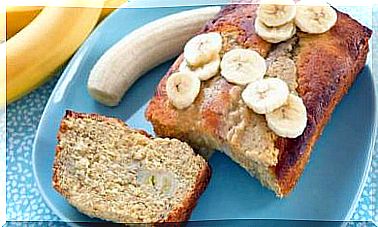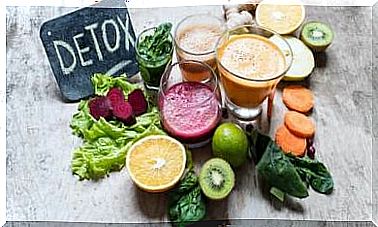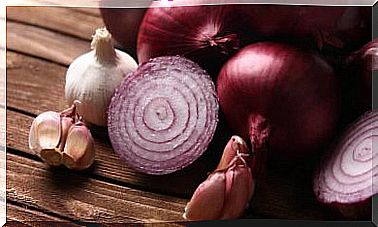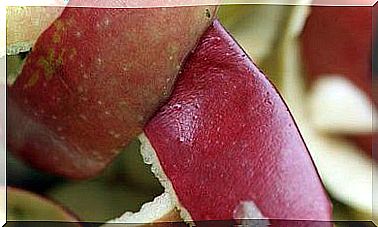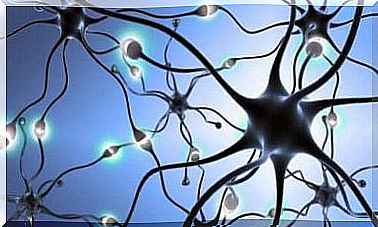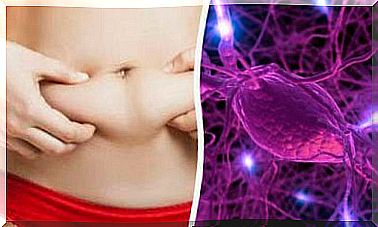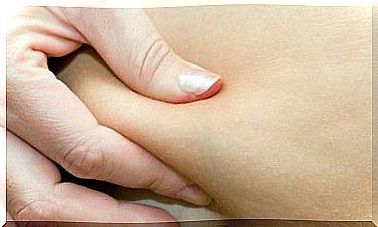Bacterial Overload Syndrome In The Gut: Symptoms And Diet
Excessive consumption of antibiotics can be counterproductive and lead to bacterial overload in the gut. It is important not to self-medicate and to consult a specialist in the face of the slightest symptom.
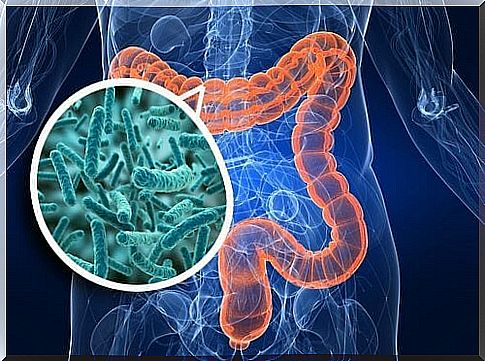
Bacterial overload syndrome in the gut is a more common pain than we think.
Known as SIBO, or intestinal bacterial overgrowth, this disease mostly affects the small intestine and people with intestinal problems.
Patients diagnosed with this syndrome must follow a suitable diet in order to restore the bacterial flora and strengthen the immune system.
This is why it is important to know the first symptoms well. We will give you all the information in the following article.
Bacterial overload syndrome and the small intestine
The small intestine measures between 8 and 9 meters and it is connected to the stomach. It contains very little bacteria inside, compared to the large intestine.
It contains less than 10,000 bacteria per milliliter of fluid while the large intestine and colon store more than one thousand million per milliliter of fluid.
It is important to ensure that this balance is not too upset.
- The small intestine is an essential part of the immune system because it contains a large network of lymphoid cells that help fight disease and infection.
- The cause of bacterial overload syndrome is an increase in the number of bacteria, or changes in the small intestine.
For example, microorganisms lodge there when they should be in the colon and not in the small intestine. - This overload of bacteria affects both the structure and function of the small intestine.
- Digestions become heavier and nutrients are not well absorbed. We then feel pain and discomfort which are the consequence of inflammation of the cells that cover the small intestine.
Symptoms of bacterial overload syndrome
Heavy digestions
The presence of bacteria which should be in the colon and which lodge in the small intestine, completely modifies the digestions.
After a few bites of a dish, you will feel a very characteristic heaviness.
Digestions are slow and painful, so much so that we have to lie down to calm these discomforts. It should also be noted that one suffers from excessive gas.
Diarrhea
Diarrhea is a syndrome of bacterial overgrowth in the intestine. The stools are almost always watery, and very watery.
Weight loss
It should be known that the alteration of the cellular balance of the walls of the intestine will cause a gradual destruction of the lymphoid cells.
This bowel disease attacks our immune system because we lose weight and get infections more easily.
Sudden intolerance to certain foods
The internal imbalance in the small intestine means that we can no longer digest certain foods.
Likewise, this decrease in immune defenses alters the synthesis of nutrients to the point that we suffer from intolerance.
- Bacteria in the small intestine attack the B vitamins, as well as proteins.
- The internal environment in the intestine becomes poisoned by the accumulation of foods that are not absorbed, and whose original composition is altered.
How does our body react to bacterial overload in the intestine?
The body has several ways of preventing this bacterial overload. To cope with the excessive colonization of bacteria in the small intestine, the body reacts as follows:
- It secretes stomach acid to get rid of these pathogens.
- The muscle wall of the intestine secretes immunoglobins to protect itself.
- There is a valve that allows the flow to go from the small intestine to the large intestine. It is the ileocecal valve, which is responsible for regulating the passage of stomach acid to the intestine.
Causes of bacterial overload syndrome in the intestine
SIBO can have many different and varied causes. However, the most common causes are as follows:
- An alteration of stomach acids and this acidic environment through which we protect ourselves against the build-up of bacteria.
- Being celiac is one of the causes that can determine the onset of bacterial overload syndrome.
- Suffer from irritable bowel.
- Suffer from Crohn’s disease.
- Being diabetic.
- Have undergone chemotherapy.
- Suffer from cirrhosis or pancreatitis.
- Consume lots of antibiotics.
- Consume alcohol.
- Oral contraceptives.
How to treat bacterial overload syndrome?
As you can see, this condition is linked to diseases. This is why it is necessary to count on medical help to follow a treatment adapted to the particular needs.
However, it is important to follow the basic rules:
- It should be noted that the intestines clean themselves approximately every two hours. In order not to overload them with work, it is important to eat little but several times a day, leaving at least three hours between each meal.
- Avoid consuming foods that contain lactose and fermentable carbohydrates, found not only in dairy products but also in fruits high in sugar (apricots, apples, pears, cherries, plums). Also watch out for bread, flour and cereals.
- Eat gluten-free bread.
- The most recommended fruits are:
- Bananas
- Grapes
- Blueberries
- Lemons
- Kiwi fruit
- Grapefruits
- Consume fat soluble vitamins and B12 to fight off excess harmful bacteria.
You can find B12 vitamins in pharmacies or consume them through these foods:- Squash
- Carrots
- Cod liver oil
- The salmon
